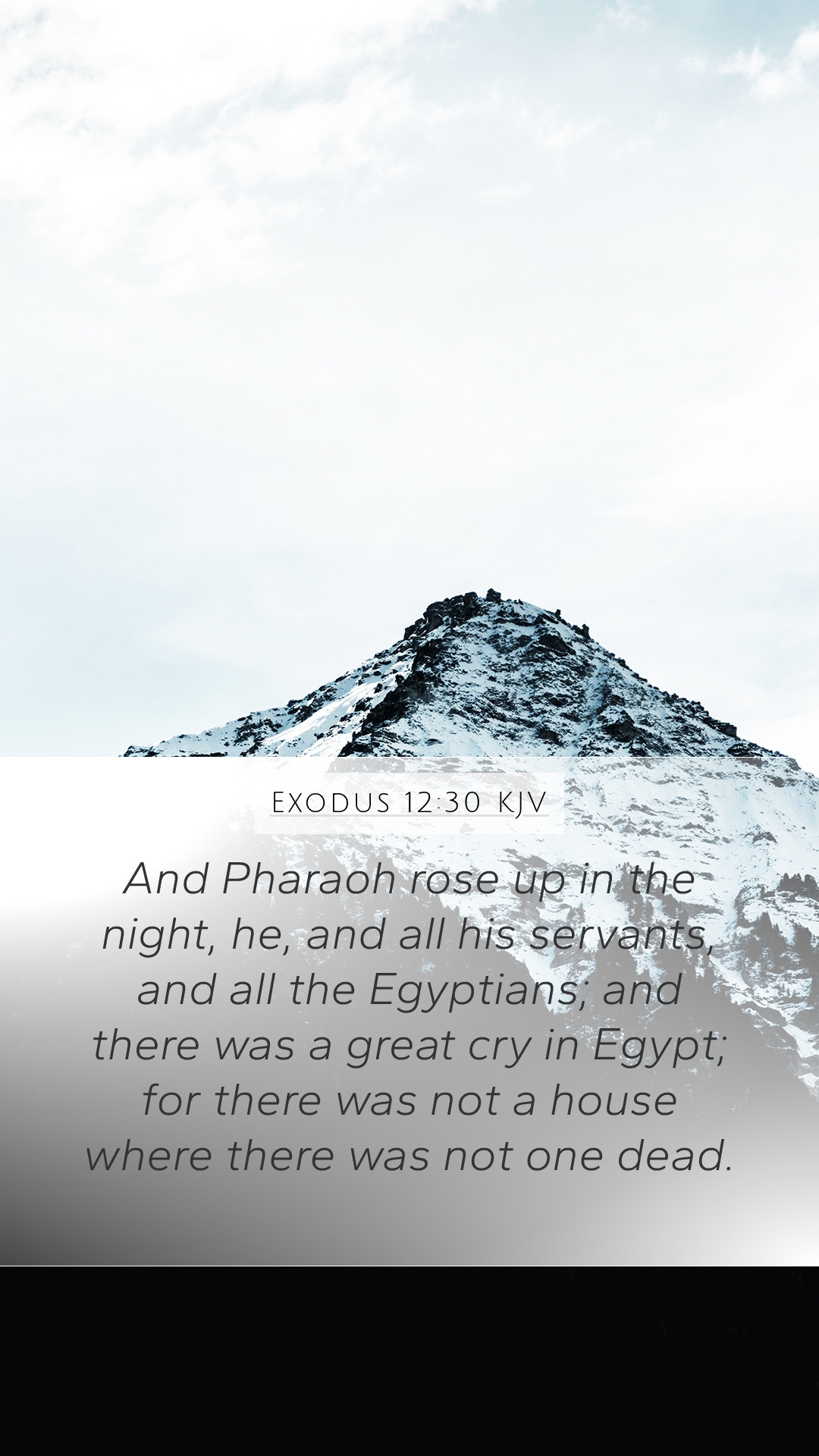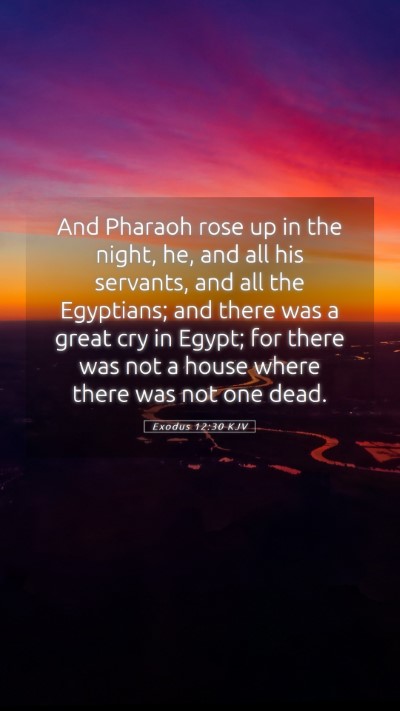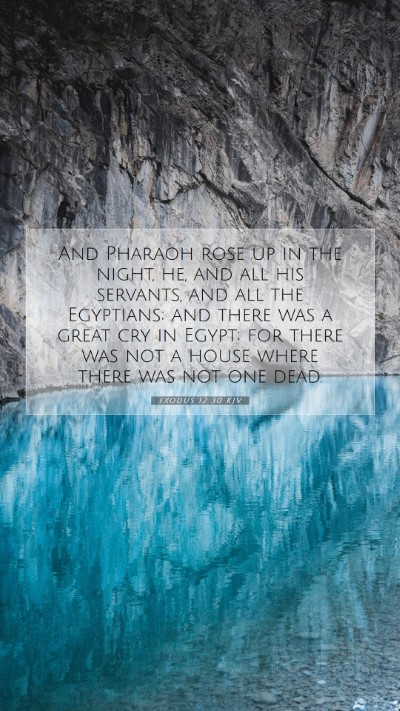Understanding Exodus 12:30
Exodus 12:30 narrates a pivotal moment in the Exodus narrative, where the death of the Egyptian firstborns occurs due to God's judgment against Pharaoh and the oppression of the Israelites. Below is a combined understanding of this verse based on prominent public domain commentaries.
Verse Overview
Exodus 12:30: "And Pharaoh rose up in the night, he, and all his servants, and all the Egyptians; and there was a great cry in Egypt; for there was not a house where there was not one dead."
Verse Interpretation
This verse is significant as it captures the dramatic culmination of the plagues inflicted upon Egypt, emphasizing God's sovereignty and the fulfillment of His promise to deliver the Israelites. The sense of urgency and fear is palpable, showcasing the consequences of Pharaoh's hard-heartedness. Below are key insights from various commentaries:
- Matthew Henry: He highlights the emotional intensity of this moment with a focus on the sudden devastation that fell on Egypt, illustrating the dire consequences of disobedience to God's commands. Henry notes that the "great cry" reflects a deep sorrow that reverberated across the nation, symbolizing the divine judgment being executed.
- Albert Barnes: Barnes emphasizes the sheer horror experienced in the land of Egypt, interpreting this event not only as a physical death but as the death of their hopes and pride. He discusses the spiritual implications of Pharaoh’s rejection of God and the lessons for humanity in recognizing divine authority.
- Adam Clarke: Clarke provides a theological interpretation, suggesting that this event signifies a turning point for Israel, marking the end of their oppression and the beginning of their journey to freedom. He explains that the dramatic nature of the plague serves as a warning to nations and individuals about the repercussions of stubbornness against divine will.
Significance of the Verse
The significance of Exodus 12:30 extends beyond its historical context. It serves as a reflection on the themes of judgment, mercy, and redemption throughout Scripture. This verse illustrates both the destruction brought upon the Egyptians and the deliverance of the Israelite people, making it a cornerstone for understanding God’s character and His covenant with His chosen people.
Cross References
- Exodus 11:4-6: This passage foretells the coming judgment on Egypt, setting the stage for the events in Exodus 12.
- Exodus 12:29: The direct lead-up to verse 30, confirming God's command over life and death.
- Romans 9:17-18: Paul's reflections on Pharaoh illustrate the sovereignty of God in hardening heart and showing mercy.
- Hebrews 11:28: The faith of the Israelites in observing the Passover connects to their eventual deliverance.
Application for Today
Exodus 12:30 encourages deep reflection on themes such as:
- The ramifications of defiance against God’s will.
- The importance of obedience and faith in God's promises.
- The hope of redemption in the face of despair.
In modern contexts, this verse prompts individuals and communities to consider how they respond to divine instruction and the importance of humility before God.
Conclusion
Exodus 12:30 serves as a profound reminder of God's power and the seriousness of spiritual disobedience. Through careful study and reflection on this verse, as well as its broader narrative context, believers can gain valuable Bible study insights that enhance their understanding of Scripture and deepen their faith. This underscores the importance of utilizing Bible study tools and commentary resources for a richer engagement with biblical texts.
Further Study Suggestions
For those interested in deepening their understanding of this passage, consider exploring:
- Historical context of the plagues in ancient Egypt.
- The significance of the Passover in both Old and New Testament theology.
- Parallel teachings of judgment and mercy throughout Scripture.


